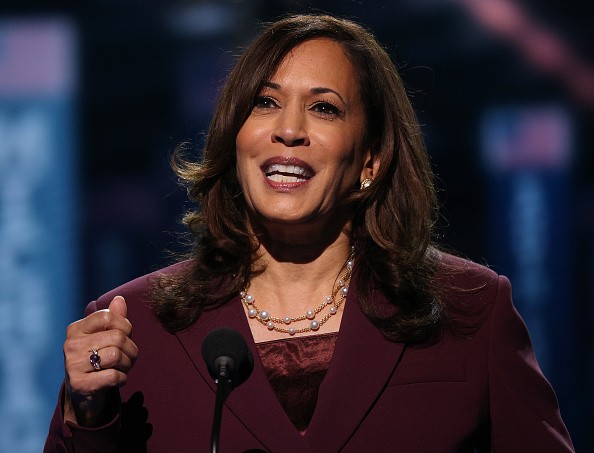Kamala Harris Makes History as First Woman of Color Elected VP

California Sen. Kamala Harris made history Saturday as the first woman of color to be elected as vice president of the United States.
Harris's win shattered another racial and gender barrier in American politics.
Almost all vice presidents who came before Harris were white men, leave for 31st VP Charles Curtis who was half-Native American.
Harris, 56, is also the first person of South Asian descent to be elected as vice president, noted Associated Press.
These are only some of the many first that Harris brings to the vice presidency.
Harris was a daughter of immigrants from Jamaica and India.
Not only will she be the first woman to take on the role, but also the first graduate of a historically black college to do so.
Even before winning the VP seat, she has already been making history just by having her name in the party's ticket.
She is also the first African American woman and the first Asian American person on a major party's presidential ticket.
Getting her the vice presidency is a reflection of the many cultures that define America which was largely absent from Washington.
"It sends a message about what kind of country we are today," American history professor Manisha Sinha of the University of Connecticut told NPR.
Sinha believes the interracial representation that Harris brings was a "very good thing for American democracy."
"[F]or me personally, it gives me a sense of national belonging that may not have been there before to some extent," she continued.
In a video tweet, Harris was seen smiling and calling Biden on the phone saying, "We did it. We did it Joe."
Amid their claim to victory to the White House, President Donald Trump claimed he was being a victim of fraud amid the election.
He refused to concede defeat and filed suits in several states, but with not much luck.
Harris's Thoughts on Racial Issues
With her Black identity, Harris spoke in personal terms when facing issues about race.
New York Times said in a report that from her childhood, Harris was taught that racial justice will take a long time to reach.
Even so, she spoke over police brutality and systemic racism in the country.
She spoke often of those who came before her, from her parents to immigrants who were drawn to the civil rights struggle in the U.S.
Harris Connects with Minority Voters
Harris's connection with voters was evidenced by one NBC News exit poll which found that Black and Asian voters leaned towards Harris than white voters.
Experts also believe Harris' name on the ballot pushed more Asian Americans to cast their votes for this year's election.
The connection also reflects on-ground with the Black community.
"I realized we're going to have not only a woman VP, but a woman of color VP," Leighann Blackwood, a voter from Georgia, told TIME on Election Day.
Blackwood said she personally was at a disbelief that having someone like her in Washington has "taken this long, but it's just truly inspiring."
Harris served as a San Francisco district attorney and California's attorney general before she became senator.
Biden and Harris will be sworn into presidency and vice presidency on January 20, 2021.
Subscribe to Latin Post!
Sign up for our free newsletter for the Latest coverage!
© 2026 Latin Post. All rights reserved. Do not reproduce without permission.













